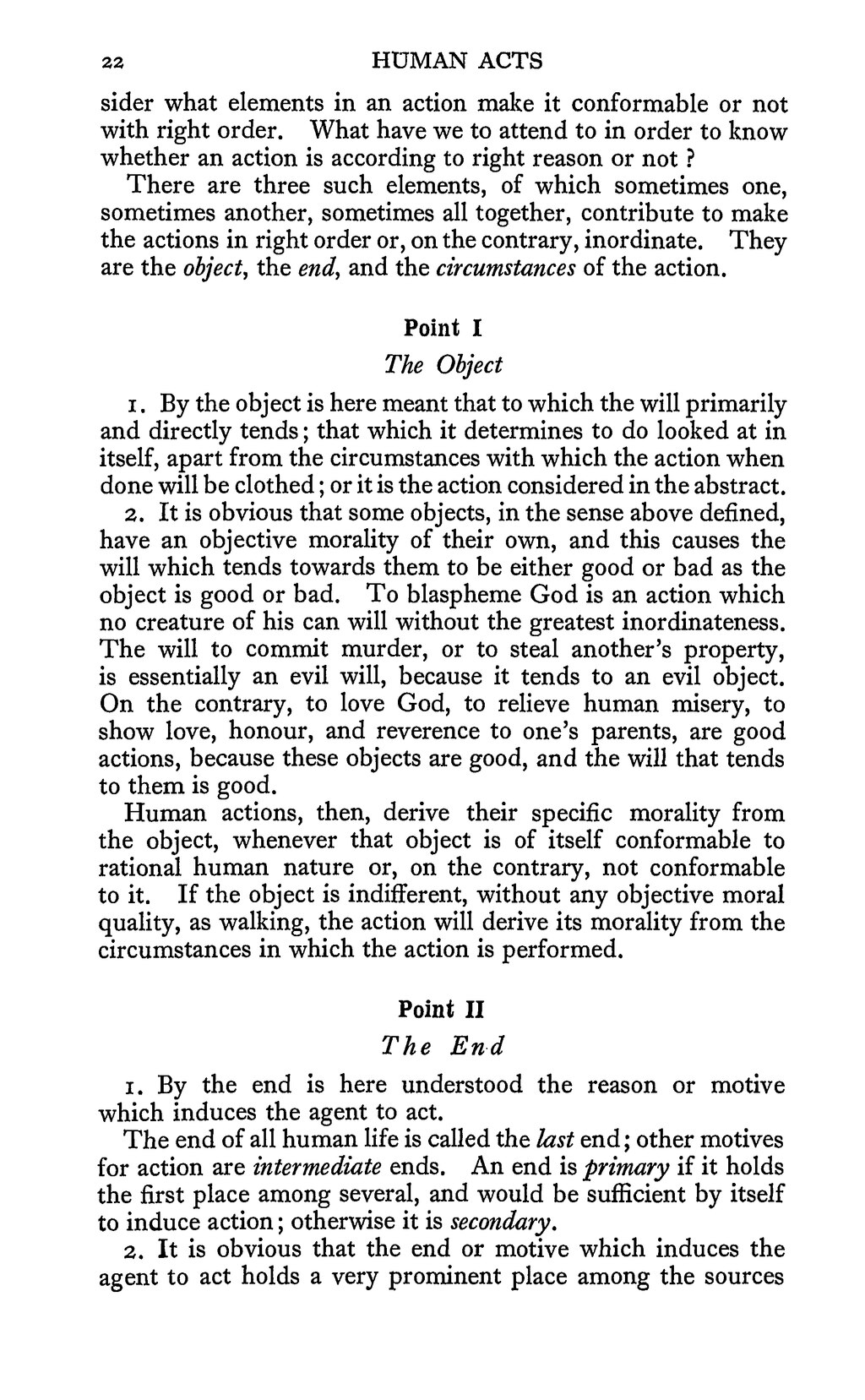sider what elements in an action make it conformable or not with right order. What have we to attend to in order to know whether an action is according to right reason or not?
There are three such elements, of which sometimes one, sometimes another, sometimes all together, contribute to make the actions in right order or, on the contrary, inordinate. They are the object, the end, and the circumstances of the action.
Point I
The Object
1. By the object is here meant that to which the will primarily and directly tends; that which it determines to do looked at in itself, apart from the circumstances with which the action when done will be clothed; or it is the action considered in the abstract.
2. It is obvious that some objects, in the sense above defined, have an objective morality of their own, and this causes the will which tends towards them to be either good or bad as the object is good or bad. To blaspheme God is an action which no creature of his can will without the greatest inordinateness. The will to commit murder, or to steal another's property, is essentially an evil will, because it tends to an evil object. On the contrary, to love God, to relieve human misery, to show love, honour, and reverence to one's parents, are good actions, because these objects are good, and the will that tends to them is good.
Human actions, then, derive their specific morality from the object, whenever that object is of itself conformable to rational human nature or, on the contrary, not conformable to it. If the object is indifferent, without any objective moral quality, as walking, the action will derive its morality from the circumstances in which the action is performed.
Point II
The End
1. By the end is here understood the reason or motive which induces the agent to act.
The end of all human life is called the last end; other motives for action are intermediate ends. An end is primary if it holds the first place among several, and would be sufficient by itself to induce action; otherwise it is secondary.
2. It is obvious that the end or motive which induces the agent to act holds a very prominent place among the sources

